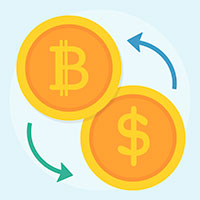In the forex industry and investment world, scalping refers to trading currencies based on a set of real-time analysis. The idea and purpose behind this, is to make profit through buying or selling currencies by holding the position for a limited amount of time and closing it for a small profit. In other words, it involves looking around for small profits regularly by entering and exiting a position multiple times within the same day.
The system that the majority of traders use is most of the times based on a set of signals stemming from technical analysis charting tools. These tools depend on a variety of signals that make up a buy or sell decision when they point in the same direction. As a result, a forex scalper looks for a very big number of trades for a small profit each time.
How Scalping works: Scalping vs Day Trading
Unlike scalping, in day trading a trader opens a position and then closes it again during the present trading session and never carries a position into another trading period or holds it overnight. While a day trader looks to take a position a few times a day, a forex scalper will trade multiple times during a trading session.
There is another major difference between scalpers and day traders. The former, may trade off 5- and 30-minute charts, whereas scalpers often trade off tick charts and 1-minute charts. To be exact, some scalpers aim for moves that operate at high speed and occur when there is a release of economic data and news including the announcement of the employment statistics or GDP figures.
Scalpers on the other hand, are more likely to try and scalp between 5 and 10 pips from each trade they make and to repeat this again and again within the day. High leverage and just a few pips profit at a time adds up to scalpers’ trading. The latter usually achieve the desired results when their trades are profitable and can be repeated multiple times throughout the day.
Assuming that with one standard lot, the average value of a pip is about $10, it means that for every five pips of profit made, the trader can make $50 at a time. If the trader trades ten times a day, this would equal $500.
Scalping: Pros & Cons
Starting with the advantages, scalping does not require much market knowledge, which is more suitable for newbies. Also, there are low barriers to entering which is very good for retail forex traders. Since the forex market is liquid it means that traders can enter and exit a trade easily. Moreover, trades are held for a short period, therefore, losses from reversals can be reduced.
On the negative side, leverage with forex scalping can increase gains but also losses as well. Since there is small profit-per-trade, it makes it challenging to reach a trader’s financial goals. Also, there is potential for one large trading loss taking away many profitable trades. There is finally some amount of risk in forex scalping because of market volatility.
A forex scalping trading strategy can either be manual or automated. In the first case, the trader looks for signals and interprets whether to buy or sell. Nonetheless, many scalpers use automated trading systems when making their trades with their brokers. In such a case, a trader would instruct the system what signals to look for as well as what action to take once a signal has been triggered. The use of an automated stop-loss order is also common in case the rate moves against the position. Since they reduce trading losses, stop-loss orders with scalping strategies are ideal for managing risk.
 For active traders and investors, mastering the art of trading volatility is a crucial skill. Volatility, in financial terms, refers to the extent to which asset prices fluctuate over time. High volatility markets experience rapid price swings...
For active traders and investors, mastering the art of trading volatility is a crucial skill. Volatility, in financial terms, refers to the extent to which asset prices fluctuate over time. High volatility markets experience rapid price swings... The global financial market operates as a dynamic ecosystem, where understanding the connections between different market movements can provide invaluable insights for forecasting...
The global financial market operates as a dynamic ecosystem, where understanding the connections between different market movements can provide invaluable insights for forecasting... The forex market, also known as the foreign exchange market, stands as the largest and most traded financial market globally. FXTM is committed to equipping our clients...
The forex market, also known as the foreign exchange market, stands as the largest and most traded financial market globally. FXTM is committed to equipping our clients... Cryptocurrency trading has rapidly grown into a bustling and dynamic market that attracts traders from around the world. With the potential for significant profits...
Cryptocurrency trading has rapidly grown into a bustling and dynamic market that attracts traders from around the world. With the potential for significant profits... The year 2023 has been a landmark period for the international broker Octa (formerly known as OctaFX), characterized by significant achievements and substantial contributions...
The year 2023 has been a landmark period for the international broker Octa (formerly known as OctaFX), characterized by significant achievements and substantial contributions...